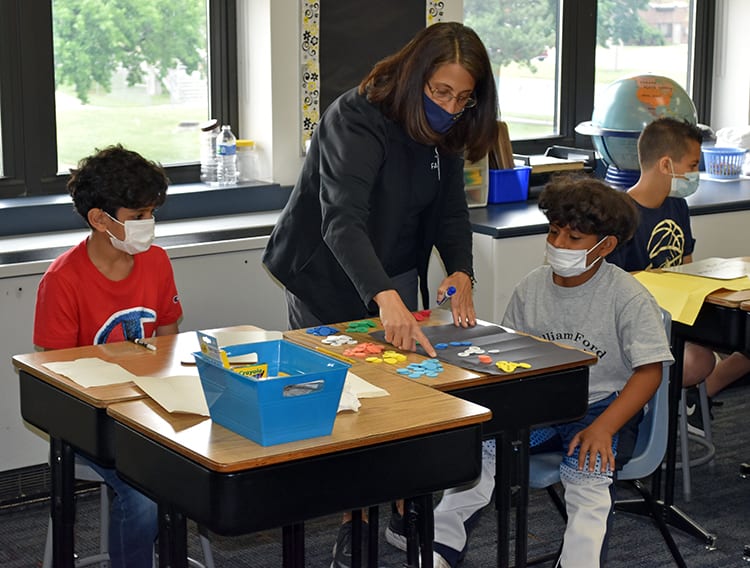Press Release #44/June 23,2021
The Board of Education for Dearborn Public Schools approved a $333 million total budget for next fiscal year on Monday, June 21. That budget includes $232 million for the general fund, with the rest for programs outside the general fund like food service, federal Title 1 money, Adult Education, and some special education items.
Michigan public schools are required to have a budget in place before their new fiscal year starts on July 1, even though the state has not yet set its budget for its fiscal year that starts on October 1. State funding makes up 70 percent for the district’s revenue.
Dearborn’s budget was based on the district receiving $8,992 per student from the state for the new fiscal year, an estimated increase of $80. Last year (fiscal year 2019-20) was the first time since 2011 that the district has received more than $8,800 in per pupil funding.
The district had 20,300 students in the official spring 2021 count.
Both the current fiscal year and newly approved budget include some federal money through the Elementary and Secondary School Emergency Relief Fund (ESSER). ESSER funding is being released to schools in waves.
The district has already been allocated $37 million in the first two waves of federal funding. Another estimated $124 million in federal funding could be coming to Dearborn Public Schools, but that money is part of a relief package state legislators have not yet approved.
The ESSERS 2 funds have to be spent on certain items like safety equipment, cleaning and upgrades related to COVID; online learning tools, training and resources; providing summer learning and enrichment programs for students; and providing other support services such as helping with emotional well-being and planning food distribution programs.
Dearborn expects to spend $20 million on its robust summer academic and enrichment program, which is free for students in kindergarten through high school. About 6,100 students signed up to participate in those programs, the largest summer program the district has ever hosted.
Where possible, Dearborn Public Schools used some of the federal funding to pay for items that were already in the budget, thus freeing general fund dollars to help with other areas.
For example, Michigan last year told districts to expect to see their funding cut by hundreds of dollars per student for the current fiscal year. Instead, the state used the early waves of federal dollars to cover the school funding shortfall. For Dearborn, that meant $1.3 million of federal funds were spent to keep teaching positions the district otherwise would have been forced to eliminate, resulting in layoffs.
The district used another $4.6 million in COVID-releated federal funding for staff and teachers for the Virtual Learning Program. VLP allowed parents to opt their students into online only learning for the 2020-21 school year.
Almost $2.7 million was used to train the more than 1,200 district teachers to use new on-line learning platforms such as Schoology and Zoom so they could provide live, online instruction for students. Another $4 million was used to replace 15,000 Chromebooks in the district.
Because the district was able to use the federal funding for eligible expenses, some money was freed up in the budget for other items. For example, instead of the initial $7 million budgeted this year for building repair and maintenance, the district was able to increase that budget to $24 million.
For next year, $10 million is budgeted for total capital improvements.
At Monday’s board meeting, trustees approved more than $1 million in work to air-conditioning and air-handling units across the district. Better air handling is one of the areas that can be paid for with the federal funds, and the district will use ESSER 3 dollars for those projects once the state approves allocating the additional money. A 2019 building evaluation concluded that it would cost more than $54 million to install air conditioning throughout all of the district’s 32 school buildings. The current budget does not include adding air-conditioning at any buildings.
“We are very grateful to the federal government for the additional funding and hope the state will soon be able to agree to release the bulk of the federal COVID funding for schools,” said Superintendent Glenn Maleyko. “The district is working hard to ensure we make the best use of the money, but it is important for residents to understand that the federal government has placed guidelines and limits on how we can spend the CARES- ESSER funding.”

